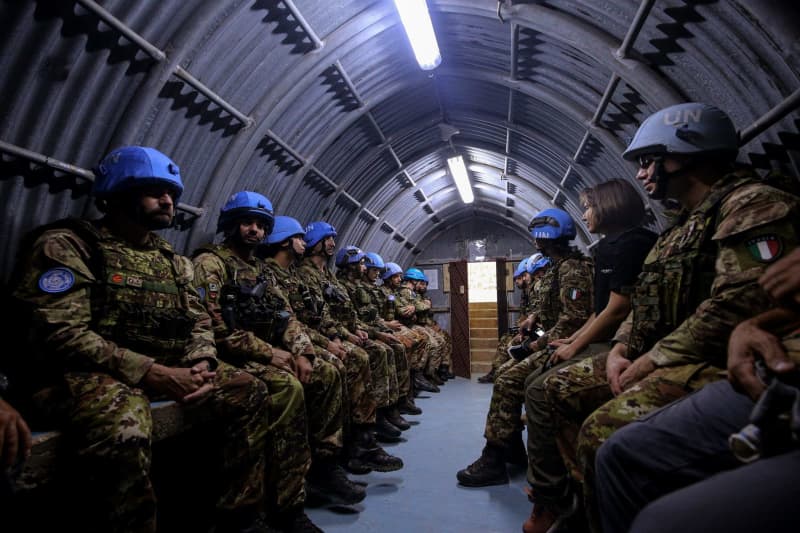On a troubling note for peacekeeping efforts in southern Lebanon, another United Nations peacekeeper has sustained injuries due to gunfire at UNIFIL’s headquarters in Naqoura. This incident marks a concerning escalation, with five troop members being injured within just two days. The United Nations Interim Force in Lebanon (UNIFIL) disclosed that the latest shooting occurred on Friday night, resulting in one peacekeeper being shot. Following the incident, medical intervention was necessary; the injured party underwent surgery at the medical facility in Naqoura to remove the bullet and is presently reported to be in a stable condition.
The specific origin of the gunfire remains unclear, as UNIFIL has not yet determined from where the shots were fired. This lack of clarity comes amidst a backdrop of heightened military activity in the area, which raises concerns about the safety of personnel deployed to maintain peace in a region historically fraught with conflict. Moreover, this incident is compounded by another occurrence in which a building at a UNIFIL position in Ramyah, located east of Naqoura, suffered significant damage due to nearby explosions and shelling.
The situation has attracted attention not only for the injuries sustained by the peacekeepers but also for the overarching context of military engagements in southern Lebanon. The Israel Defense Forces (IDF) have confirmed responsibility for the previous injuries of four peacekeepers due to their operations directed at Hezbollah militants. The IDF explained that these operations aimed to neutralize threats posed by Hezbollah, which has reportedly been positioning itself near UNIFIL sites. This presents a dangerous overlap between military action and UN peacekeeping efforts, raising serious questions about the operational environment in which peacekeeping forces are functioning.
The growing number of incidents and the resulting injuries among UN peacekeepers reflect an increasingly volatile situation in the region. UNIFIL’s role as a stabilizing presence is severely challenged when military operations take place in close proximity to peacekeeping locations. The risks faced by peacekeepers—clearly demonstratable in this latest series of incidents—serve to undermine the efficacy of international missions meant to provide security and humanitarian support in fragile zones.
In light of the escalating tensions, the United Nations may need to reassess its presence and operational strategies in Lebanon to ensure the safety of its personnel and the overall integrity of the peacekeeping mission. The unfortunate reality is that peacekeepers often find themselves caught in the crossfire of larger geopolitical conflicts, which diminishes their ability to perform humanitarian and stabilizing activities effectively. This ongoing crisis not only affects the safety of peacekeepers but also contributes to the broader instability faced by civilians in the region.
As the situation develops, it will be critical for UNIFIL to enhance its engagement with local communities while maintaining communication with military forces operating in the area. Increased collaboration could provide vital information regarding emerging threats that could jeopardize the safety of peacekeepers and the local populace alike. The United Nations, alongside member states, must prioritize the safety of peacekeepers while working towards sustainable solutions that protect civilian populations and promote long-lasting peace in Lebanon.

